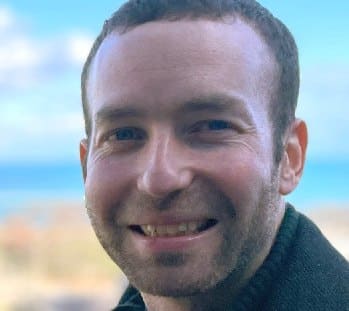Collaborations across healthcare can save lives – especially when working with patient advocates. For a person like me, who is impacted by a rare, neurological, and incurable disease, it’s my mission to ensure that patients’ perspectives are represented early and throughout drug development.
As someone who witnessed his mom battle Huntington’s Disease (HD) for 17 years, I know how crucial it is to find an effective treatment for this condition. Unfortunately, I learned I also carry the HD gene and I’m guaranteed to get symptoms until there is a treatment in time. One of the current challenges is that even though I have the gene, I don’t qualify for most clinical trials since I’m not clinically diagnosed. There is a ton of research out there that shows clinical changes can happen for as long as 20 years prior to clinical onset.
How do we fix this issue? Bring in the patient perspective to better understand how people like myself, who are pre-symptomatic, don’t want to wait until we are sick to participate in a study, or receive a potential treatment. In late July I, along with six other Huntington’s Disease (HD) advocates, spoke at an FDA Patient Listening Session to share our stories and the risks we are willing to take to participate in trials today, not in the future.
There were HD patient advocacy organizations along with 50 members of the FDA in attendance to witness what the FDA Director of Neuroscience, Billy Dunn, mentioned as the first pre-symptomatic disease population to share the unmet needs of our community. I was shocked yet excited to hear this because I knew how essential it was to engage directly with the FDA if we truly wanted to accelerate HD research.
It took a village to make this happen, with over six months of preparation that my good friend and fellow HD patient advocate, BJ Viau, was instrumental in helping get done. Not only did we have to work closely with our fellow HD community advocates, but had to create an IRB survey to capture more data to better understand the impact HD has on patients before being clinically diagnosed. Within one month, we were able to get 164 qualified responses where we learned:
- 73% of respondents visited a clinician less than once a year.
- 76% expressed a level of willingness to participate in pre-symptomatic clinical trials.
- Using a hypothetical thought experiment, individuals were willing to accept a mortality risk between 30-42% for a gene therapy that would slow symptoms by 90%.
If you’d like to learn more about the session, check out BJ’s great recap about it or reach out directly to me to see how you can get involved.
Although the survey gave us great insight, it is just scratching the surface on understanding the unmet needs of the pre-symptomatic community. However, BJ and I cannot do this ourselves, and will need the help from all other HD stakeholders to get this done. We plan to gather these stakeholders at the upcoming Huntington Study Group conference this November 3-5 in Tampa, FL, to develop next steps.
Throughout this experience, I’ve learned the importance of collaborating with the patient community early and throughout drug development if we truly want to accelerate research. Patient advocates, like myself, are tired of waiting around for others to make research move faster and would rather get our hands dirty too. Because if I decide to wait, then it might be too late for a potential treatment to slow down this disease for me and many of my friends.
Seth Rotberg is a patient advocate, community connector, and motivational speaker. His passion is driven by his mother’s 17-year battle with the rare, genetic disease known as Huntington’s Disease (HD). Through his 13 years of experience navigating the healthcare system, he’s worked with different healthcare stakeholders including: patient advocacy organizations, patient influencers, pharma/biotech, genetic counselors, and healthcare recruitment companies. Seth has a master’s in nonprofit management from DePaul and currently resides in Chicago. Watch his TEDx here and follow him on Instagram here.
Not a member of the Society? Please consider joining here: https://participatorymedicine.org/memberships/







Recent Comments